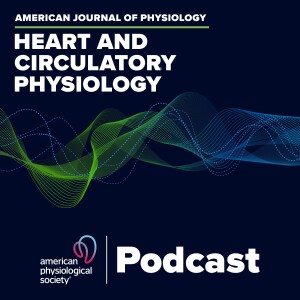
What is driving the exaggerated blood pressure response to exercise in patients with peripheral arterial disease (PAD)? In this podcast, Editor in Chief Irving H. Zucker (University of Nebraska Medical Center) interviews senior author Gail Thomas (Penn State College of Medicine) and content expert Hanjun Wang (University of Nebraska Medical Center) about the unique study by Kuczmarski et al. Thomas and co-authors used telemetry to record blood pressure during exercise in conscious animals, both before and after bi-lateral femoral artery ligation. The studied was conducted over a period of two months, a technical success given that the authors used chronically-instrumented conscious animals. Thomas and collaborators found that the blood pressure response was exaggerated as early as 3 days after femoral artery ligation and lasted for the duration of the experiment in both female and male mice. Are the mechanisms that play a role in blood pressure response to short-term ligation, such as cytokines IL-6 and activation of the purinergic P2X3 receptors, also at work here? Listen and find out.
J. Matthew Kuczmarski, Kellee Unrath, Gail D. Thomas Exaggerated cardiovascular responses to treadmill running in rats with peripheral arterial insufficiency Am J Physiol Heart Circ Physiol, published October 6, 2017. DOI: 10.1152/ajpheart.00401.2017
More Episodes
 2012-06-01
2012-06-01
 371
371
 2012-05-24
2012-05-24
 297
297
 2012-05-17
2012-05-17
 236
236
 2012-05-02
2012-05-02
 218
218
 2012-04-24
2012-04-24
 196
196
 2012-04-13
2012-04-13
 175
175
 2012-04-03
2012-04-03
 155
155
 2012-03-14
2012-03-14
 162
162
 2012-02-28
2012-02-28
 156
156
 2012-02-09
2012-02-09
 147
147
 2012-02-06
2012-02-06
 154
154
 2012-02-02
2012-02-02
 118
118
 2012-01-18
2012-01-18
 89
89
 2012-01-11
2012-01-11
 129
129
 2011-12-13
2011-12-13
 79
79
 2011-11-17
2011-11-17
 96
96
 2011-11-09
2011-11-09
 373
373
Create your
podcast in
minutes
- Full-featured podcast site
- Unlimited storage and bandwidth
- Comprehensive podcast stats
- Distribute to Apple Podcasts, Spotify, and more
- Make money with your podcast
It is Free
- Privacy Policy
- Cookie Policy
- Terms of Use
- Consent Preferences
- Copyright © 2015-2024 Podbean.com





